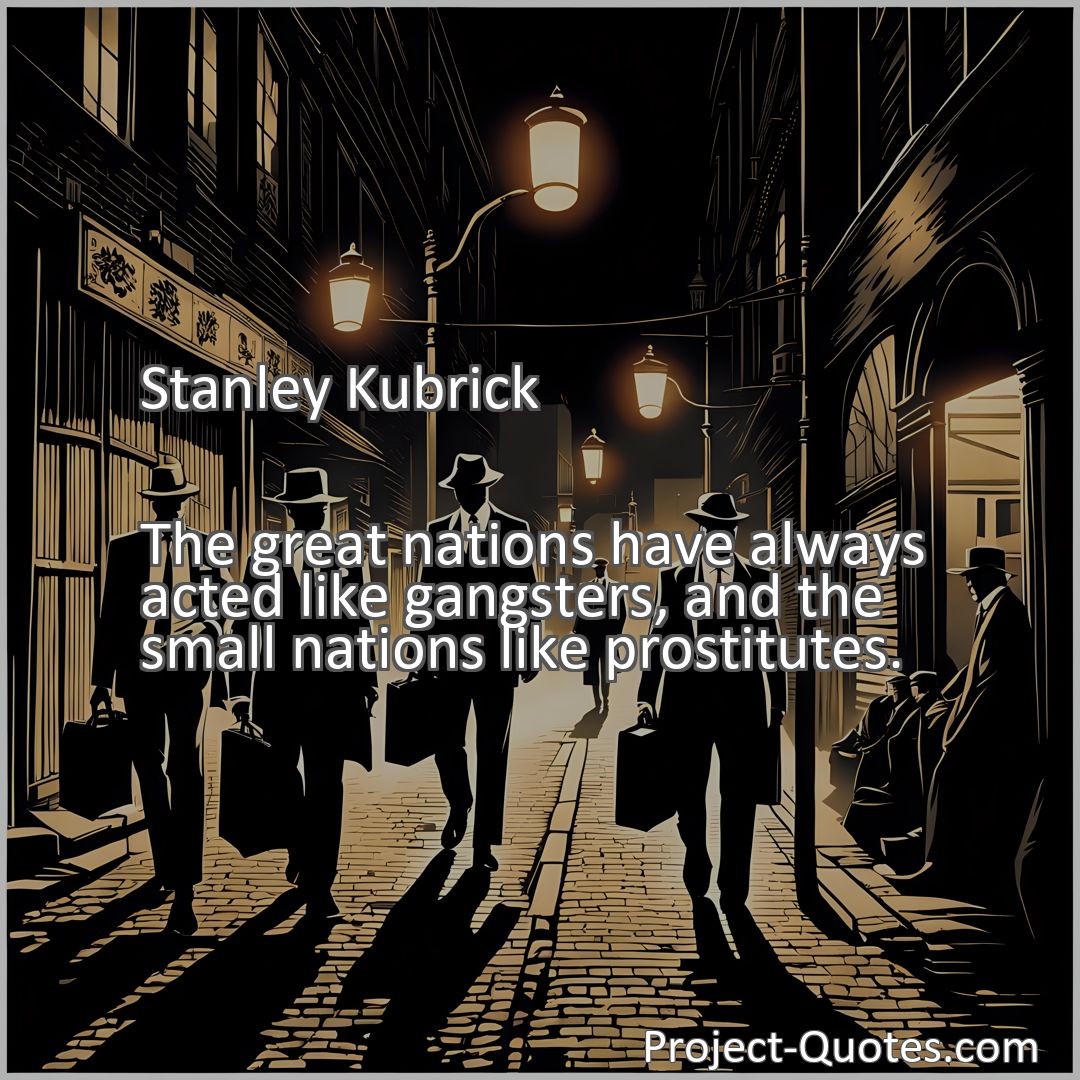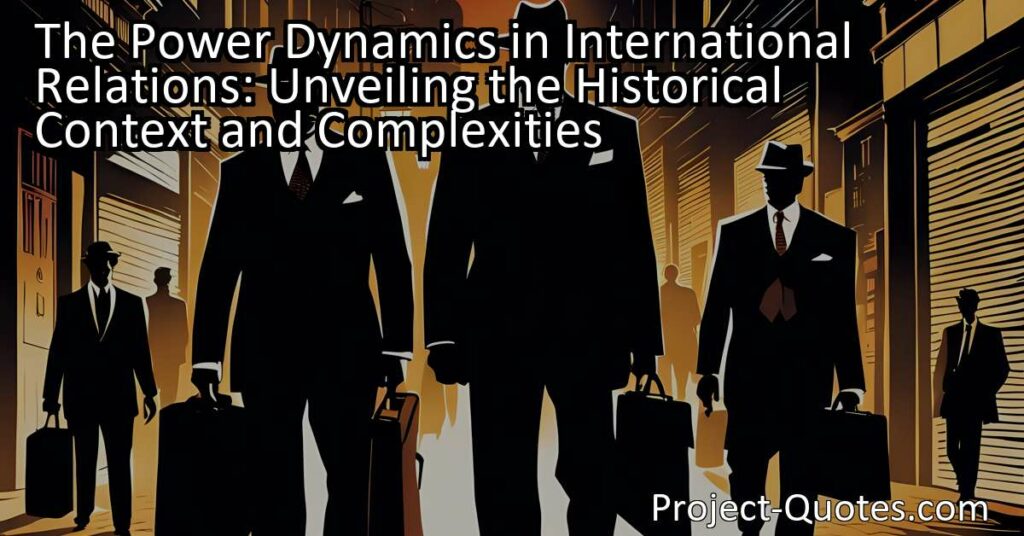The great nations have always acted like gangsters, and the small nations like prostitutes.
Stanley Kubrick
The title “The Power Dynamics in International Relations: Unveiling the Historical Context and Complexities” explores the relationships between nations and how power dynamics shape global affairs. The content discusses the historical context of gangsters and prostitutes as metaphorical representations of nations, the vulnerability of smaller nations, the complexities within countries, and the impact of power dynamics on international relations. By understanding the nuances and diverse perspectives within nations, we can strive for a more equitable and just global community.
Table of Contents
Meaning of Quote – The great nations have always acted like gangsters, and the small nations like prostitutes.
Throughout history, the actions of nations have often been compared to that of different societal roles. One well-known quote that captures this sentiment is, “The great nations have always acted like gangsters, and the small nations like prostitutes.” While this may seem like a harsh comparison, it serves to highlight the power dynamics that have shaped international relations. In examining this quote, we can delve into the historical context, the inherent complexities within nations, and the impact of these dynamics on global affairs.
To fully understand the meaning behind this quote, it is crucial to reflect on the historical backdrop against which it was made. The imagery of gangsters and prostitutes evokes a sense of lawlessness and exploitation, which can be observed throughout various periods in history. In the early 20th century, for instance, the rise of imperialism showcased the aggressive behavior of major powers as they sought to expand their territories and influence. Countries like Britain, France, and Germany competed for control over colonies in Africa and Asia, displaying a willingness to use force and coercion to achieve their objectives.
On the other hand, small nations often found themselves at the mercy of these great powers. Lacking the military might and resources of their larger counterparts, they were often left with little choice but to submit to the demands of the more powerful nations. This vulnerability is reflected in the comparison to prostitutes, as it implies a lack of agency and the presence of exploitation. Small nations faced difficult decisions when their autonomy was threatened, especially when standing up against powerful forces meant facing severe consequences.
Digging deeper, it is essential to recognize that nations are complex entities comprised of diverse individuals, each with varying ideologies, values, and motives. While the quote generalizes nations as a whole, it fails to acknowledge the diversity of opinions and actions within countries, regardless of their size. Great nations, just like smaller ones, often consist of citizens who hold differing perspectives on how their country should engage with the wider world. It can be overly simplistic to equate an entire nation’s actions with those of a specific group within it.
Furthermore, the quote puts great emphasis on power dynamics, discussing how great powers behave like gangsters. However, it is essential to note that power dynamics are not limited to nation-states alone. Within societies, power imbalances also exist, leading to inequality and exploitation. It is crucial to recognize this broader context and not limit the discussion solely to the actions of nations. By acknowledging power dynamics at all levels, we can work towards a more nuanced understanding of how global relations are shaped.
Examining the impact of these power dynamics on global affairs, it becomes evident that the actions of great nations shape the geopolitical landscape. Their decisions can have significant consequences, both positive and negative, for both their own citizens and those of other nations. The quote implies that great nations tend to prioritize their own interests above all else, often at the expense of smaller nations. While this may be true in some instances, it is important to recognize that not all great nations act solely out of self-interest.
International alliances and organizations such as the United Nations have been established to promote cooperation, dialogue, and the prevention of conflicts. Numerous great nations have played critical roles in facilitating negotiations, providing aid to those in need, and promoting stability on a global scale. Therefore, it is crucial not to paint all great nations with the same brush, as their actions can vary significantly depending on the circumstances and the leaders in power.
In conclusion, the quote, “The great nations have always acted like gangsters, and the small nations like prostitutes,” encapsulates a particular perspective on the power dynamics between nations throughout history. However, we must approach this quote with a critical lens, recognizing the complexities within nations and the multiple factors that shape their international behaviors. While there have been instances of exploitation and aggression, it is vital to avoid generalizations and acknowledge the nuances that exist within each country. By doing so, we can strive for a more comprehensive understanding of international relations and work towards fostering a more equitable and just global community.
I hope this quote inspired image brings you hope and peace. Share it with someone who needs it today!


